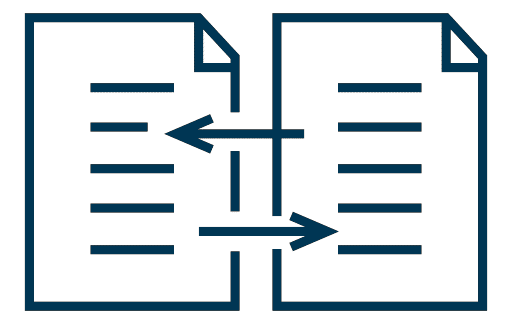Summary In the contemporary business environment, digital procurement is becoming increasingly popular and sought after by businesses around the world. The relationships …
What is the impact of digital transformation on procurement in financial services?
What are the key areas of transformational impact for procurement in financial services?

Cost efficiency
Streamlining procurement processes to reduce costs and optimise spending, often through improved supplier negotiations and strategic sourcing.

Risk management
Enhancing supplier risk assessment and management practices to mitigate hurdles related to compliance, performance, and geopolitical factors.

Strategic sourcing
Shifting from transactional to strategic sourcing by developing long-term relationships with suppliers and aligning strategies with business goals.

Technology integration
Leveraging technologies to drive transformation efficiencies, automate procurement processes, and gain deeper insights into spending patterns

Supplier collaboration
Fostering closer collaboration with suppliers and vendors to drive procurement innovation, improve quality, and enhance supply chain resilience.

Compliance and governance
Strengthening compliance bases with regulatory requirements and governance standards, ensuring ethical and transparent procurement practices.

Sustainability
Integrating sustainability considerations into procurement decisions to support corporate social responsibility and environmental objectives.
Talent development
Investing in developing talent to build a skilled workforce capable of navigating complex market dynamics and driving strategic initiatives.
What are the benefits of digital transformation for procurement in financial services?
Cost reduction and management
Organisations can reap considerable benefits in cost reduction and management by embracing digital transformation in procurement. By leveraging digital tools, organisations can acquire comprehensive insights into their expenditure trends. Such enhanced visibility enables them to identify potential avenues for savings and optimise their budget allocation efforts. With comprehensive knowledge of the precise location and manner in which funds are allocated, financial establishments can effectively determine strategies to maximise their expenditures.
Analytics obtained from digital platforms empower procurement teams to actively engage in strategic negotiations with suppliers. The availability of comprehensive data enables organisations to negotiate optimal terms, secure advantageous pricing, and ultimately diminish overheads. This tactical method not only amplifies the efficiency of procurement procedures but also strengthens financial management and promotes cost containment.
Enhanced risk management
Digital transformation initiatives significantly enhance risk management in procurement processes by providing advanced tools for proactive risk identification and regulatory compliance. Advanced analytics and automated risk assessment tools enable organisations to foresee and address potential risks related to supplier performance, compliance issues, and fluctuating market conditions. By leveraging these technologies, financial institutions can mitigate risks before they impact operations, ensuring smoother and more secure procurement in financial services.
In addition, digital solutions play a crucial role in maintaining regulatory compliance. Automated compliance checks and accurate record-keeping ensure that procurement in financial services adheres to regulatory requirements and industry standards. This not only reduces the risk of non-compliance but also strengthens the organisation’s ability to manage, monitor and document its adherence to regulations effectively.
Operational efficiency
Digital transformation significantly enhances the operational efficiency of procurement in financial services by automating routine tasks and streamlining workflows. Generating purchase orders, processing invoices, and managing approvals reduces manual effort and accelerates procurement cycles. This not only speeds up operations but also minimises the risk of errors, ensuring accurate and efficient management of procurement activities specific to banking and insurance services.
Integrating digital tools into processes standardises and simplifies workflows, facilitating smoother and faster decision-making. This streamlining of processes helps eliminate operational bottlenecks and boosts overall efficiency. For financial institutions, this means procurement teams can shift their focus from routine tasks to more strategic initiatives, improving their ability to respond to organisational needs and drive greater productivity and effectiveness within the procurement function.
Data-driven decision making
Digital transformation in financial services empowers procurement processes by elevating data-driven decision-making. Advanced analytics provide valuable and actionable insights into critical procurement metrics, such as supplier performance and spending trends. By leveraging these powerful procurement analytics, financial institutions can make informed decisions that drive unparalleled efficiency and effectiveness in their procurement strategies.
The implementation of predictive analytics and data constitutes a pivotal role in strategic procurement forecasting for financial services. It empowers organisations to proactively predict forthcoming requirements, challenges and trends, facilitating highly informed strategic planning and meticulous resource allocation. This proactive methodology empowers financial institutions to remain ahead of constant market fluctuations and fine-tune their procurement strategies towards optimal alignment with strategic business objectives.
Improved stakeholder management
Digital transformation significantly improves stakeholder management in procurement within financial services by enhancing communication, visibility and collaboration. For instance, banks that are implementing a digital procurement platform can significantly enhance their stakeholder management. By using these platforms banks can seamlessly communicate with suppliers and internal departments. Digital platforms enable effective interactions with various stakeholders, including suppliers, clients, and internal teams. This collaboration fosters stronger relationships and efficient performance monitoring across the board.
Streamlined onboarding processes and performance tracking to ensure that all stakeholders meet organisational standards and expectations. By leveraging digital tools, financial institutions can ensure that stakeholders are aligned with procurement objectives and business goals, leading to more effective and transparent management of these critical relationships.
Greater transparency and accountability
Digital transformation enhances transparency and accountability in procurement through real-time tracking and robust audit trails. For example, a financial institution using a digital procurement system can track order statuses and spending instantly, ensuring every transaction is transparent and readily accessible. This real-time visibility aids in maintaining accountability, and transparency and allows for quick resolution of any discrepancies.
Furthermore, the procurement system generates detailed audit trails that support comprehensive internal and external audits. By maintaining thorough records of all procurement activities, the institution can easily demonstrate compliance with regulatory standards and internal policies. This transparency and meticulous oversight reinforce stakeholder trust, ensure that procurement processes are managed to the highest standards and not only enhance oversight but also drive continuous improvement in their procurement practices.
What are the best practices for implementing digital transformation in procurement?
Evaluate current procedures and requirements
Assess your current procurement strategy to identify areas where digital innovation can provide the greatest benefits. Conduct a thorough examination of existing workflows, areas of difficulty, and performance criteria to determine which aspects need improvement. This evaluation will help prioritise areas for enhancement and establish specific goals for your transformation journey.
Choose optimal technologies
Carefully select the appropriate digital tools and technologies that align with your procurement objectives. Consider scalability, integration capabilities, and user-friendliness when evaluating options. Choose technologies that not only meet current requirements but also support future expansion and adaptability, ensuring a seamless alignment with your procurement strategy.
Foster a digital culture
With 64% of firms recognising the need to build new digital businesses to stay competitive, cultivating a digital-first culture is essential. Foster a culture that builds a supportive environment that embraces change and innovation by providing training, promoting open communication about the benefits of digital tools for procurement, and involving key stakeholders in the process.
Continuous improvement and adaptation
The process of digital transformation demands constant assessment and improvement. Consistently observe the efficacy of your digital solutions, acquire input from stakeholders, and remain up to date on emerging technologies and developments. Utilise this intel to progressively enhance your tools, guaranteeing their continued effectiveness in line with developing business requirements.
Leverage the transformative impact of digital innovation with Kronos Group
Staying ahead means embracing digital transformation in procurement. At Kronos Group, we specialise in guiding financial institutions through this transformative journey, ensuring that your procurement processes are optimised for efficiency, transparency, and strategic value.
Partner with us to transform your procurement function into a strategic asset that drives efficiency, transparency, and competitive advantage. Contact Kronos Group and benefit from our procurement consulting services—start your journey toward a more agile and future-ready procurement strategy today.
Fighting the effects of inflation with sourcing and procurement consultants
Stay up-to-date on the latest insights on procurement, finance, and project management.
Summary Strategic procurement has become a necessity in today’s business world and organisations try to remain competitive. Having the right procurement strategies …
Summary The world of consulting has been undergoing a massive transformation and management consulting jobs are experiencing the impacts of these changes. …
FAQ
Financial services procurement involves acquiring goods, services, and technology needed for financial institutions to operate efficiently. This includes sourcing software, IT services, consulting, and other resources essential for banking, insurance, and investment operations.
Future trends include increased use of AI and machine learning for predictive analytics, greater integration of blockchain for transparency, widespread adoption of cloud-based procurement solutions, and enhanced focus on sustainability and ESG criteria. Implementing and balancing these technologies requires a deft and expert touch.
Data analytics plays a crucial role by providing insights into spending patterns, supplier performance, and market trends. It enables informed decision-making, enhances risk management, optimises procurement processes, and drives strategic sourcing initiatives.














